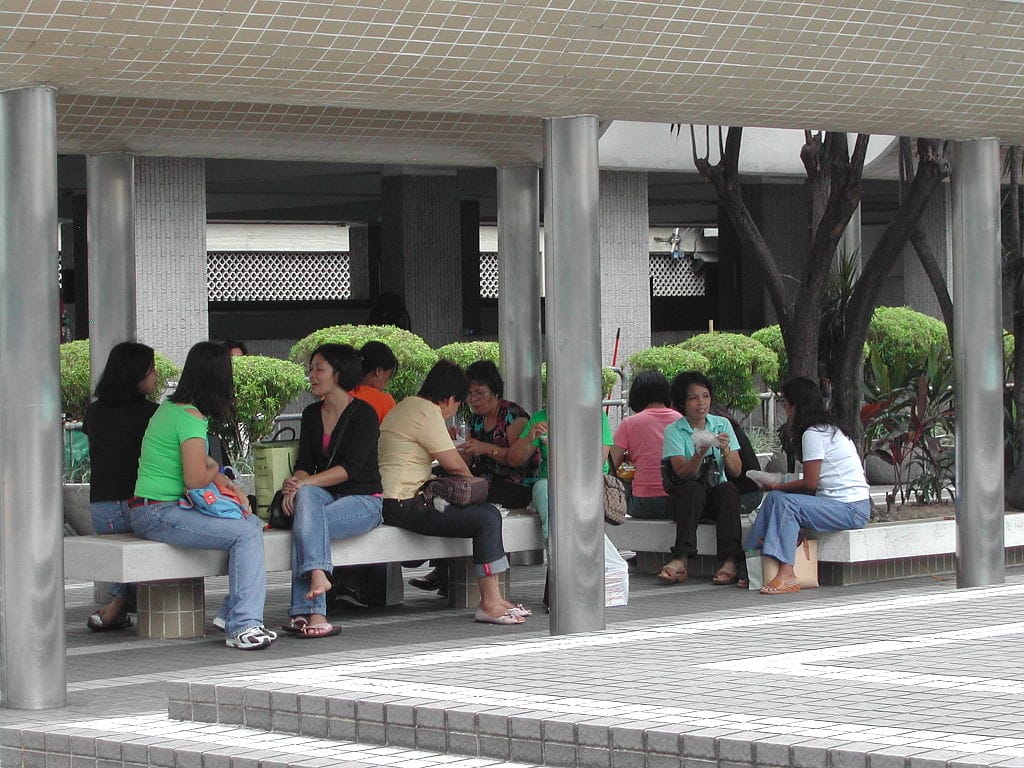How much of an impact do domestic helpers have on Hong Kong?
Aside from helping families and economies, domestic helpers also provide important cultural exchange.

A few minutes every morning is all you need.
Stay up to date on the world's Headlines and Human Stories. It's fun, it's factual, it's fluff-free.
People in Hong Kong, both local and foreign, rely a lot on the work of domestic helpers – and so does the city's economy.
The Hong Kong Census and Statistics Department says there are almost 400,000 foreign domestic helpers in Hong Kong, making up around 6% of the city's population, with the majority hailing from the Philippines and Indonesia. And almost all of them are women.
Less expensive than other daycare services, domestic helpers offer a second pair of hands to help look after children and also do everyday household jobs like cooking and cleaning, allowing both parents to work. This means the family is better off financially and can invest in cars and property and do things outside of taking care of the home, improving their quality of life.
"The dual income individual families are able to access has significant knock-on effects, and allows them to attain a higher socioeconomic status," Lucinda Pike, executive director of Hong Kong domestic worker charity Enrich, told TIME.
On top of that, the sheer number of domestic helpers in Hong Kong has boosted the economy. They help bring in more money from abroad, and a study from Enrich and global information services company Experian found that they have the largest economic footprint in the city. Plus, these domestic helpers send some of their earnings back to their home countries to support their families, boosting those economies, too.
Aside from helping families and economies, domestic helpers also provide important cultural exchange, as they've integrated and become a huge part of Hong Kong's society. Many share their culture with the families they work for, teaching them about their home countries and their traditions. This just adds to the melting pot of Hong Kong.
But, domestic helpers in the city have faced some challenges; for example, low wages, long hours and sometimes abuse and mistreatment. The Hong Kong government recently raised the minimum allowable wage for domestic helpers to HK$4,870 per month (US$622), and employers are required to offer either free food or a food allowance of no less than HK$1,236 (US$158) per month. But they still often live in cramped spaces, and there isn't a limit to how many hours they work, so there's no overtime pay for helpers working extra long hours.
All in all, domestic helpers are an integral part of Hong Kong's society. "The number of women in my team is staggering, the number of working moms is staggering," said Sisca Margaretta, chief marketing officer of Experian. "If we were to take them all out, what would it do to the productivity of the economy?"




Comments ()